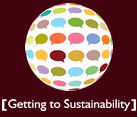Australia's clean energy sector has taken an important step in its work with rural and regional communities to deliver jobs and investment, by releasing new wind Community Engagement Best Practice Guidelines and a community expectations guide on 30 May 2013.
Clean Energy Council (CEC) Chief Executive David Green said the guidelines were designed to encourage greater.
Read more
Category Archives: Electricity
17 April, 2013
The Clean Energy Regulator has developed a new online reporting system which will be used by all liable entities required to report their emissions, energy consumption and production under the National Greenhouse and Energy Reporting (NGER) Scheme.
The system, called the Emissions and Energy Reporting System (EERS) will replace the Online System for Comprehensive.
Read more
Master Electricians Australia has urged the Queensland Government to formalise the energy audit industry and help prevent scammers from conducting energy audits on homes.
Master Electricians Australia Queensland state manager Stephen King called on the state government to endorse energy efficiency and assessment qualification as a prerequisite for performing in-home energy audits in the state.
“Master Electricians.
Read more
'Buildings don't use energy - people do' is a story written for the Fifth Estate, by Stephen Choi, senior consultant with Viridis.
This is an extensive article unveiling the complexities of energy auditing, building management and how people approach the associated challenges.
As a consultant, Choi consistently finds that there is often "a gulf between what the.
Read more
The European Union has proposed a new package of carbon and renewable energy targets for 2030 that could see the introduction of a 40 per cent carbon reduction target, as well as a 30 per cent share target for renewable energy.
More at Renewecononomy's Mixed Greens by Sophie Vorrath of 28.
Read more
Save now, pay later: the hidden costs of lower electricity bills
By Ian McPhail, University of Southern Queensland No lights, no power, no internet – and no easy solutions. Fumbling around in a middle of a blackout, hoping to find a torch or some spare batteries, I was struck by just how utterly dependent most of us.
A new report by The University of Queensland's Global Change Institute has drawn together some top economists to consider possible scenarios for delivering a competitive Australian power system in 2035.
Accordingly, it examines where the Australian power economy needs to be positioned to address the issues that global change presents, including rising prices, carbon constraints.
Read more
